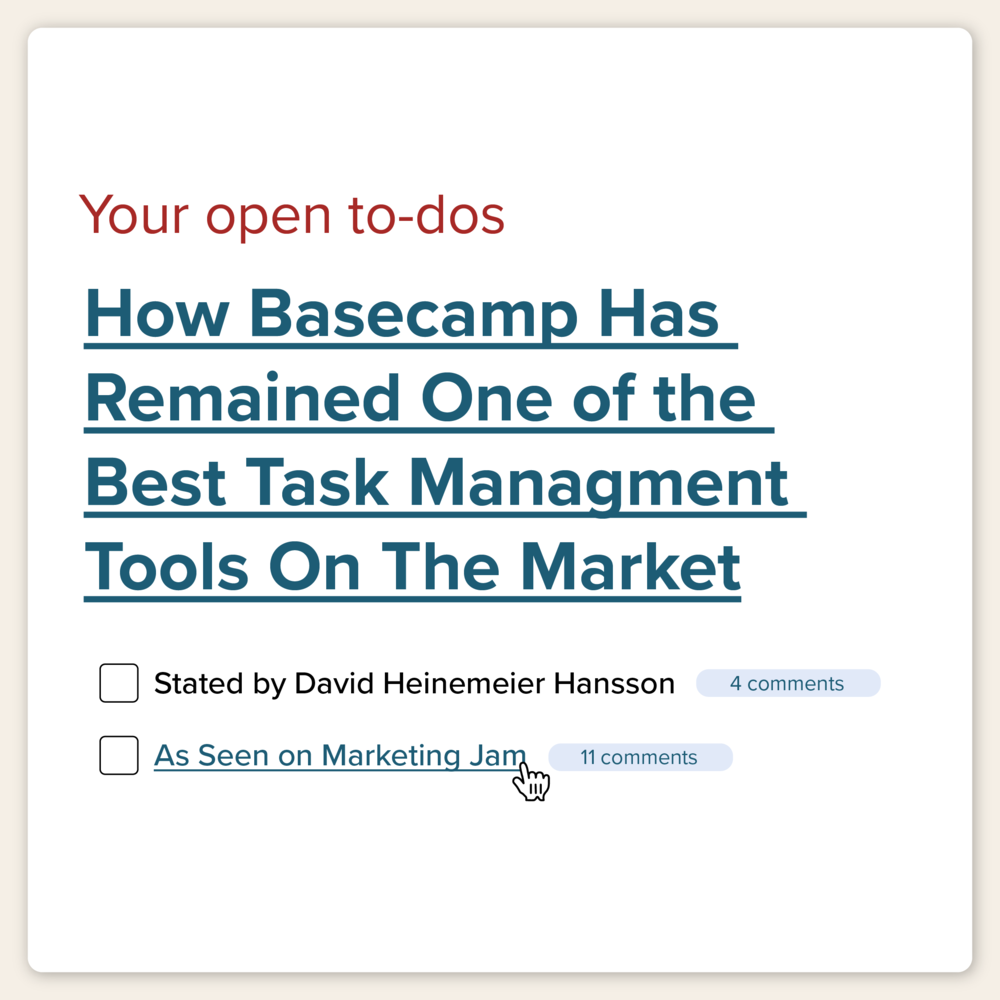David Heinemeier Hansson Talks About The History and Culture of Basecamp
David is the Co-Founder and Chief Technology Officer of Basecamp, a project management software. David started working with Jason Fried, the other Co-Founder of Basecamp, back in 2001 when the company was still called 37 Signals. Back then it wasn't even the software company it is today, but consulting for web design, so David would to the programming and 37 Signals did the design. Shortly after starting there, David and Jason started working on external projects together, and in 2003 one of them turned into the Basecamp project management company we know and love today.
Originally Basecamp was meant to be an internal tool that worked as a blog/to-do list manager that could also hold files. After realizing how great this new tool was, David and Jason showed it off to a few others and from there it took off. Fast forward to the present, and Basecamp is on its third version with major success. David explains that even as the software has grown, die-hard customers still use the Original Basecamp version 1 that has not changed since 2009. “Its been a great sense of pride that we’ve kept these versions of basecamp around,” David boasts. He sees that the new versions have different updates that might seem better than the previous ones, but it doesn't mean that they are better than the last in his eyes. Every customer has different needs that are supported by the 3 different platforms because each of them has been redesigned and reconfigured completely from scratch.
David says they have no plans to discontinue the old versions, their mantra is “until the end of the internet”, so to all Basecamp 1&2 users out there: don't sweat it!
Another thing that has not changed is the pricing for past customers, David says if you started with the $19 subscription of Basecamp 1, that's what you're paying today. He doesn't see the point in raising prices for these die-hard customers, because they are already getting the product’s best potential for that time, so why up the price? They are happy with what they are doing and there's no need to change it. The same goes for their software, David points out that they don't feel pressured to pack as many tools and new gadgets as they can into Basecamp so that they are the #1 project management tool out there, they want to stick to their model and keep playing to the tune that their audience loves. Basecamp is in this perfect “in-between” that works for all kinds of businesses just because it’s so easily pliable and not in a specific niche.
David and Jason have recently written their fourth book, “It Doesn't Have To Be Crazy At Work”, that makes the aggressive argument that way most companies are structured is just harmful to human beings and their souls. It’s broken into two parts, one is the revelation that a business does not have to be large to be successful and the other is a diagnosis of how we spend our time. “This goes all the way to how we spend our time, to what are our ambitions,” David states, most companies spend too much effort trying to become a success overnight, and not enough time focusing on where they are right now and maintaining a steady environment. He argues that a small business size is not a stepping stone, that any business can be successful with 10-20 people (or even less!) and feel fulfilled. Why move past the small business sparkle?
David is also working on a product called Hey, an email service that gets rid of the unneeded email footers and other information that so many complain about. “We have a different diagnosis with what is wrong with email,” David explains, and they have turned it into something people could get behind. You can check it out at Hey.com.
Basecamp is known for being a work-from-home based company for any of their employees-- even before CODIV-19 changed the way many of us work day today. Being so versed in the work for home life, David and Jason wrote a book called “Remote Office Not Required”, and they noticed one of the top things that people working from their home office need to remember is that they need to pace themselves. Just because the laptop is there, doesn't mean you need to be on it to answer emails late into the night. “Think of it as a new skill,” David explains. You must set up new habits and realize that we are only one person and we can’t do it all.





Written by Darian Kovacs, host of the Marketing News Canada News Show and founder of Jelly Digital Marketing and PR.

